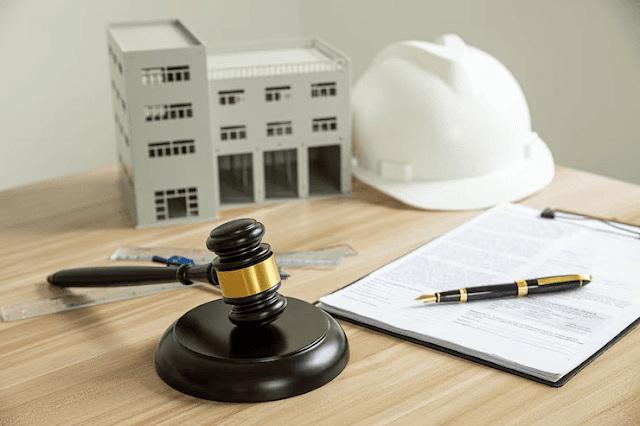Understanding the Role of Aviation Attorneys in Complex Legal Cases
The aviation industry is highly regulated, involving complex laws that govern everything from aircraft safety to business operations. Whether you're an airline, airport operator, or a private aircraft owner, legal challenges in aviation can arise at any moment. This is where an aviation attorney steps in to protect your interests and help you navigate these complicated legal landscapes. In this blog, we will explore the essential roles that aviation law attorneys play in safeguarding businesses and individuals involved in aviation.
1. Expertise in FAA Regulations and Compliance
One of the most critical areas of aviation law is compliance with Federal Aviation Administration (FAA) regulations. These laws dictate everything from aircraft maintenance standards to pilot certifications and airport operations. Any violation of these regulations can result in severe penalties, legal battles, or the grounding of aircraft.
An aviation law attorney helps ensure that your business complies with all applicable FAA regulations. They provide guidance on maintaining operational standards, ensuring proper documentation, and handling audits. If a compliance issue arises, they will defend your interests and work toward a swift resolution.
Why It Matters:
Compliance with FAA regulations is essential for avoiding legal penalties and ensuring that your aircraft remain operational.
2. Legal Assistance in Aircraft Transactions
Aircraft transactions, whether buying, selling, or leasing, are often complex and require thorough due diligence. From contract negotiations to ensuring regulatory compliance, these transactions involve various legal challenges. Aviation attorneys handle the legal aspects of these deals, ensuring that all parties adhere to the terms and that potential risks are mitigated.
An experienced aviation attorney can review contracts, negotiate favorable terms, and address any legal issues that may arise during the transaction process. Their goal is to ensure a smooth and legally sound transaction that protects your investment.
Why It Matters:
Having legal guidance in aircraft transactions can help avoid disputes and ensure that all regulatory requirements are met.
3. Navigating Airport and Aviation Business Litigation
The aviation industry faces a variety of legal challenges, from disputes between airlines and airports to conflicts involving aircraft manufacturers and service providers. These disputes can disrupt operations, damage business relationships, and result in financial losses.
A skilled aviation law attorney provides essential support during litigation, representing clients in cases related to contract breaches, airport regulations, and more. With specialized knowledge of aviation law firms, they work to resolve disputes in a timely and cost-effective manner, whether through litigation or alternative dispute resolution methods like mediation or arbitration.
Why It Matters:
Engaging a lawyer with expertise in aviation litigation ensures that your legal disputes are handled professionally, minimizing disruptions to your business.
4. Expertise in FAA Grant Assurances
FAA grant assurances are obligations that airports must meet when accepting federal funds for infrastructure development or improvement projects. These assurances cover a wide range of issues, from non-discrimination in airport access to environmental regulations. Ensuring compliance with FAA grant assurances is essential for airports to continue receiving federal funding and avoid legal challenges.
An aviation attorney assists airports in understanding and fulfilling their FAA grant assurances, protecting them from penalties or loss of funding. Should disputes arise over compliance, they represent the airport in negotiations or court proceedings.
Why It Matters:
Staying compliant with FAA grant assurances is vital for airports to secure ongoing federal support and avoid legal complications.
5. Protecting Against Liability and Risk in Aviation Accidents
Aviation accidents, while rare, can have devastating consequences. When accidents do occur, determining liability is often a complex process involving multiple parties, including aircraft manufacturers, maintenance companies, and operators. An aviation law attorney is essential in these situations, providing guidance on liability issues and representing clients in legal claims that may arise from accidents.
Whether you’re facing personal injury claims or disputes over aircraft defects, aviation lawyers will work to protect your rights and minimize legal exposure. They can also assist in dealing with insurance claims, ensuring that coverage disputes are resolved efficiently.
Why It Matters:
An aviation lawyer helps manage liability and risk in the event of an accident, protecting businesses from costly litigation and reputational damage.
6. Addressing Environmental and Noise Regulations
As airports and airlines face increasing scrutiny regarding their environmental impact, legal issues related to noise pollution and environmental regulations are becoming more common. Local communities often file lawsuits over noise levels, and airports must comply with strict environmental guidelines.
Attorney aviation law professionals help navigate these challenges by advising airports and airlines on compliance with environmental regulations and representing them in disputes related to noise pollution or environmental impact assessments. They work to strike a balance between operational needs and community concerns, minimizing legal exposure.
Why It Matters:
Complying with environmental and noise regulations is crucial for maintaining positive relationships with local communities and avoiding costly legal disputes.
7. Tied Selling in the Aviation Industry
Tied selling occurs when a seller requires a buyer to purchase additional products or services in order to complete a transaction. In the aviation industry, this can involve a car dealership requiring buyers of a vehicle to purchase additional services like maintenance packages. This practice can lead to legal challenges, especially if it violates consumer protection laws.
An aviation attorney can provide guidance on avoiding tied selling practices and defend businesses in litigation if they are accused of such practices. They ensure that all transactions are compliant with relevant laws and protect businesses from reputational and financial damage.
Why It Matters:
Understanding and avoiding tied selling practices is critical for avoiding legal disputes and maintaining a positive business reputation.
Conclusion
Aviation law is a specialized field that requires in-depth knowledge of industry regulations, contracts, and litigation strategies. Whether you need help with FAA compliance, aircraft transactions, or dispute resolution, having a qualified aviation attorney on your side can make all the difference. At STONE LLP, our experienced attorneys are dedicated to providing the legal support necessary to navigate the complex world of aviation law, ensuring that our clients' interests are protected every step of the way.
If you’re facing legal challenges in the aviation industry, contact STONE LLP today to speak with one of our knowledgeable aviation law attorneys.


.png)

Comments
Post a Comment